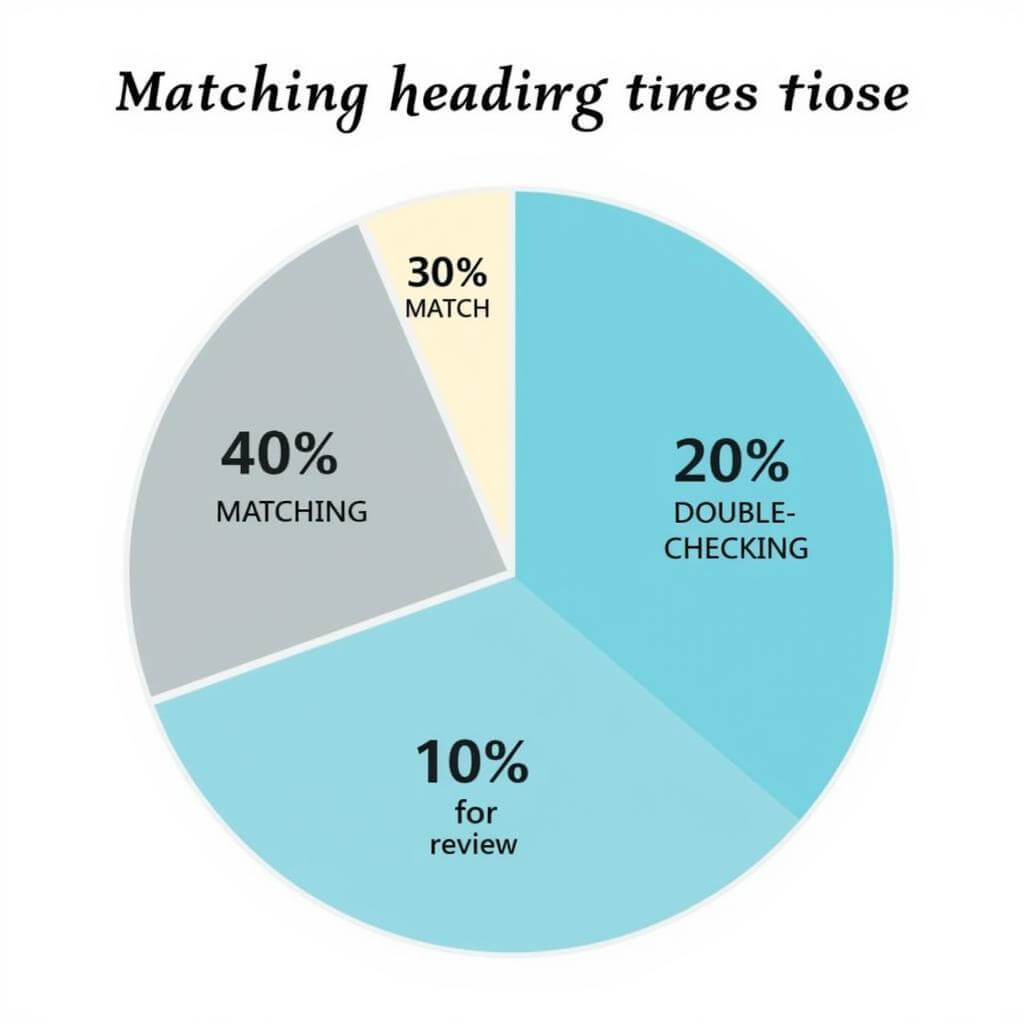Matching heading questions are a common challenge in the IELTS Reading section, often leaving test-takers feeling pressed for time. This guide will equip you with effective strategies to tackle these questions swiftly and accurately, boosting your overall performance in the Types of questions in IELTS reading section.
Understanding Matching Heading Questions
Before diving into speed-enhancing techniques, it’s crucial to grasp the nature of matching heading questions:
- Purpose: These questions test your ability to identify main ideas quickly.
- Format: You’ll match a list of headings to paragraphs or sections of text.
- Challenge: Headings often paraphrase the main idea, requiring careful comprehension.
Quick-Fire Strategies for Faster Answers
1. Skim and Scan Like a Pro
Develop your skimming and scanning skills to quickly identify key information:
- Focus on the first and last sentences of each paragraph.
- Look for topic sentences that summarize the main idea.
- Pay attention to transition words that signal important points.
“Effective skimming is like taking an aerial view of the text landscape. It allows you to spot the main features quickly,” says Dr. Emma Richardson, IELTS preparation expert.
2. Utilize Keyword Matching
Train your eye to spot connections between headings and text:
- Underline key terms in the headings.
- Scan paragraphs for synonyms or related words.
- Look for thematic links, not just exact word matches.
3. Eliminate Unlikely Options
Save time by ruling out headings that clearly don’t fit:
- Cross off headings that contradict the paragraph’s content.
- Eliminate overly specific headings for general paragraphs.
- Remove headings that have been correctly matched to other paragraphs.
4. Use Logical Deduction
When stuck between options, apply logical reasoning:
- Consider the overall theme of the passage.
- Look for cause-and-effect relationships in the text.
- Analyze the paragraph’s position within the entire passage.
5. Practice Time Management
Allocate your time wisely to ensure you complete all questions:
- Spend no more than 1-2 minutes per heading-paragraph match.
- If unsure, make an educated guess and move on.
- Leave time to review your answers at the end.

Advanced Techniques for Speedy Matching
1. Develop a Mental Map
As you read, create a quick mental outline of the passage:
- Identify the main topic of each paragraph.
- Note how ideas progress or change throughout the text.
- Recognize patterns in the passage’s structure.
This mental mapping will help you match headings more intuitively and rapidly.
2. Leverage Your Background Knowledge
Use your existing knowledge to make informed guesses:
- Draw on your understanding of common text structures.
- Apply general knowledge to contextualize unfamiliar topics.
- Recognize standard academic writing patterns.
3. Trust Your First Instinct
Often, your initial impression is correct:
- Go with your gut feeling for the first round of matching.
- Only change answers if you find clear evidence to do so.
- Avoid overthinking, which can lead to second-guessing and time wastage.
“In IELTS, confidence is key. Trust your instincts, but verify with evidence in the text,” advises Sarah Thompson, veteran IELTS trainer.
Pitfalls to Avoid
Be aware of common traps that can slow you down:
- Don’t get bogged down in details irrelevant to the main idea.
- Avoid literal interpretations of figurative language in headings.
- Don’t assume headings will appear in the same order as paragraphs.
Ways to boost IELTS reading comprehension skills can further enhance your ability to navigate these challenges efficiently.
Practice Makes Perfect
Consistent practice is the key to mastering fast matching heading techniques:
- Set aside regular time for timed practice sessions.
- Use official IELTS practice materials for authentic question types.
- Analyze your mistakes to identify patterns and areas for improvement.
Conclusion
By implementing these strategies, you’ll be well-equipped to answer matching heading questions faster and more accurately. Remember, speed comes with practice and familiarity. Keep refining your skills, and you’ll see improvement in your IELTS Reading performance. For more comprehensive preparation, explore strategies for answering summary completion and learn how to manage time effectively during reading to excel in all aspects of the IELTS Reading test.
FAQs
-
How many matching heading questions typically appear in the IELTS Reading test?
There are usually 5-7 matching heading questions in one of the three reading passages. -
Can I write on the question paper to help me match headings faster?
Yes, you can make notes and underline key information on the question paper to aid your matching process. -
What if I can’t find a perfect match for a heading?
Choose the best fit based on the main idea. Remember, headings often paraphrase rather than directly quote the text. -
Is it better to read the entire passage first or go straight to matching?
A quick skim of the entire passage followed by focused paragraph reading usually works best for most test-takers. -
How can I improve my speed in matching headings?
Regular timed practice, developing strong skimming and scanning skills, and familiarizing yourself with common IELTS topics will all contribute to faster matching. -
What should I do if I’m running out of time?
Make educated guesses for any remaining questions. It’s better to have an answer than to leave it blank, as there’s no penalty for incorrect answers.